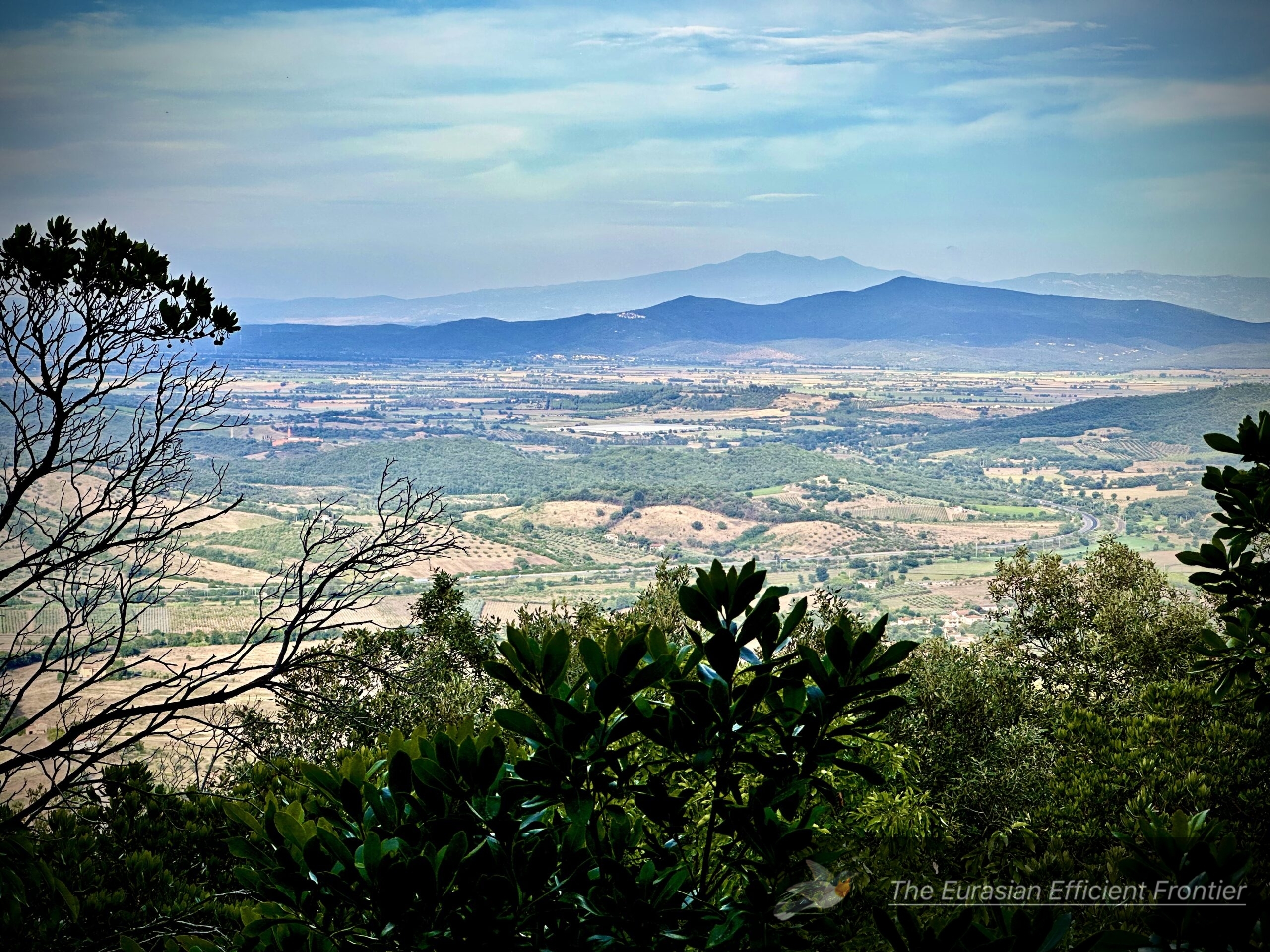Hello World!
I am Alessio, an Italian Expat currently living in China, and I work as an Industrial Engineer here.
I have a strong passion for Personal Finance and for different Cultures. Many events brought me to visit China several times, and eventually to live here, at least for a part of my life.
Currently, I have quite a long daily commuting to work (almost 5 hours… I know, it sounds crazy, but at least I am not the one who drives). I would really like to invest this time properly by working on some project.

A blog seems perfect. I love writing, and I have been thinking about that for a long time.
In this blog I would like to talk about Personal Finance, Investments (I am really passionate about these topics), Economics, China and Expat Life, Europe as seen from here and also Personal Experiences.
I have many different interests (too many, maybe): I could also occasionally post about arts, philosophy, psychology (and engineering of course, this is my field after all).
Blog Name: “The Eurasian Efficient Frontier”
This name looks a bit complex (and it is), but I love it because these three words can bring out many different meanings, often intertwined.
Let’s unpack and explain this name!
- Eurasian = Europe + Asia: it’s me!
- Frontier: reminds me of borders, trips, adventures, Expat life!
- Efficient Frontier: famous theory for Asset Allocation in Financial Portfolios. How to obtain maximum Investment Return without increasing Risk.
I currently live in Asia, but my roots are deep in Europe (I also have a small “European Corner” in my Shanghai apartment, see this Post). So, Eurasian is a good definition for me in this part of my life.
The “Efficient Frontier” is an investment theory for Asset Allocation in Investment Portfolios (it is quite famous in this field). But “Frontier” also gives the idea of someone moving across borders (and I am an Expat).
Combining “Eurasian” and “Efficient Frontier” can mix all these topics together.

Here a definition for the “Efficient Frontier” from Investopedia:
“The Efficient Frontier is the set of optimal portfolios that offer the highest expected return for a defined level of risk or the lowest risk for a given level of expected return.”

This concept can be applied to life in general, not only to investments. Risks must be managed and not simply avoided.
We must manage risks: we must not let our life be managed by our natural risk aversion. The successful person is the one who is able to experience and achieve as much as she/he can, by accepting a certain level of risk (different from zero, and defined following our personality and our personal situation).
This is true for every aspect regarding human life and human experience in this world, not only for money related topics.
Who is this blog for?
Target 1: European people interested in China
This Blog is for open minded people who would like to understand China from a European / Western perspective. This Blog is also for Chinese people who would like to understand what foreigners think and feel about living in their country.
Disclaimer: I am by no means an expert about China or a Sinologist. Even my language knowledge is not that advanced.
Such a large country with such a huge population cannot be easily understood. Its deep and ancient history and culture are so distant from Western ones, and it can feel (and feels) overwhelming. The end result is often surprise, misunderstanding, simplification, and in the end stereotype creation.
Actually, the more I live here and the more I study, the less I feel I know. I constantly feel that I just scratched the surface.

See how to compare countries real size here: https://www.thetruesize.com
China is a very, very important country in the global scenario and it will be more and more in the future. We as Europeans (and Western people in general) should try our best to understand this country, but in general I feel we don’t put much effort in it.
China, like every country in this world, is not perfect. On the opposite, it has many problems. However, common people in the West have a very distorted idea about it.
During my first trip in China, in 2016, I felt shocked by how different China was compared to how I imagined it, based on my Western knowledge (and bias). I felt tricked by my own Culture and Media system, which led me to have a very incorrect idea of this large part of the world (around 18.5% world population lives here, as of April 2023).
This first trip literally changed the way I see the world. I felt so much more awareness, and I clearly feel my life as divided in two sections by this trip, a “before” and a “after”. I will definitely write about this in a dedicated post.
Many problems of China are not widely known in the West, and many others are exaggerated. Many aspects of daily life here are simply ignored. In general, I see a superiority feeling that I, as a person, don’t like.
I feel this is both stupid and unfair.
It is stupid, because in order to compete and cooperate to enhance global economic growth allover the world, we should first try to understand how the world is and works. In Europe, and especially in some European countries, this goal seems to be forgotten. I will definitely write a post about this topic.
It is unfair, because I see that many common Chinese people work very hard (this is reality, not a stereotype) to improve their condition and their country (that they often deeply love). They generally don’t expect to be considered like “opponents” by foreigners, and are often genuinely interested and curious about the West. I always felt welcomed here, even by strangers. I cannot say the same about many places in my country or in other western countries.
Here I am not saying that people from the West are better or worse than Chinese people.
All of us are just human beings. We all share our deep human nature. None of us decides WHERE to be born, WHO our parents will be, WHAT culture we will be surrounded by when we are children. And these things strongly affect people development and growth, leading to behaviours and habit that appear somewhat “strange” to people coming from different culture.
I think that the only way to experience such a different country and to try to understand it is to try be like an Empty Cup. A cup empty from prejudice can easily welcome and be filled by new different habits, flavours, tastes, sounds, noises.

We should try not to have any prejudice. Our glasses must not be coloured with a “Western-Filter”, they must be transparent.
In the end, we must be children again. Children have not built a strong Cultural Superstructure yet, and don’t know racism. They naturally accept the world as it is, without many prejudices (they did not have much time to develop them!). And this approach is the key to learning – which is what I am trying to do everyday, and that I would like to share with this blog.
Target 2: Chinese people interested in Europe
What I wrote above can be largely flipped and referred to Chinese people interested in Europe.
I hope they will find it interesting to have an European point of view on their country, and to learn more about Europe and its people.
Target 3: People who would like to learn about Personal Finance
I know, there are many blogs and websites and Youtube videos talking about this topic. However, in my daily experience, I am often asked for suggestions about this. Several people also suggested me to open a blog about this. Here we are, I can say.
Disclaimer: I am definitely not a professional in this topic, even though I am really passionate and I studied and worked hard on this. I will NEVER give investment suggestions here.
I will try to create a short crash-course about Personal Finance.
I will suggest many books that gave me useful insights (some of them literally changed my view of the world). I will try to explain Fundamentals of Investments. I will try to share my personal strategies and studies, both for investments and for Personal Finance in general.
I am an engineer, so I will probably include many, many graphs. One picture, after all, speaks more than one thousand words, right?
Target 3+: People who are interested in both topics
Living an expat life has a strong impact on most life aspects. One of them is Personal Finance.
Personal Finance strategies as an expat can be very different from a person who always lived in its own hometown, surrounded by his/her family and friends.
I will try to discuss this, too, and strategies that I am following to manage my situation.
Fun Fact – China is BIG!
I am writing this first Blog Post during a long trip across China, for Labour Day Holiday (April 28th, 2023).
The thing that impressed me the most during my first trip to China (2016) was SIZE. European people cannot understand it without experiencing it. It is difficult to explain it well, but you can really feel how large this country is, in every single moment. Single provinces are often as large and as populous as main European countries (if not more).
High Speed Trains are efficient and fast, but travelling from Shanghai to Taiyuan (Shanxi Province Capital) takes quite a long time (9.5 hours). Commuting time inside the cities to reach train stations, and walking time inside the train stations (they are huge, too) quickly add up. Overall, around 11.5 hours to cross a relatively small part of China (around 1400 km).
As a comparison, the connection from Turin (Northern Italy) to Paris via High Speed Train takes around 5.5 hours (furthermore, a part of this trip is slow due to lack of High Speed Railway in Western Alps).

To be fair, also during this trip across part of China I will cross natural barriers such as Yangtze River, Yellow River, and some mountain range too. Yangtze River, in particular, is crossed in a tight point near Nanjing (approximately 6 km, I will probably publish a short video about that in the future). Natural barriers are usually not a problem for Chinese High Speed trains, which can reach even Tibetan Plateau.
However, even though Chinese High Speed Train Network is efficient and massively impressive (currently around 2/3 of the whole world High Speed Railway is located in China), it is much less dense than what we are used to in Europe. Just to give an idea, the closest city to the factory where I work (Changshu, Jiangsu Province, 1 million inhabitants) opened its first train station only in 2021. By contrast, many very small European villages have their own train stations (especially in some countries, for example Switzerland, Austria).
Chinese Travel Infrastructure, and in particular High Speed Trains are a very interesting topic. I will definitely write a post about it!
Feedback
Do you like this blog idea?
Look here to see the Posts published up to now!
Please write down your comment in the form below!
You can be very harsh in your judgement, I don’t get offended easily!





